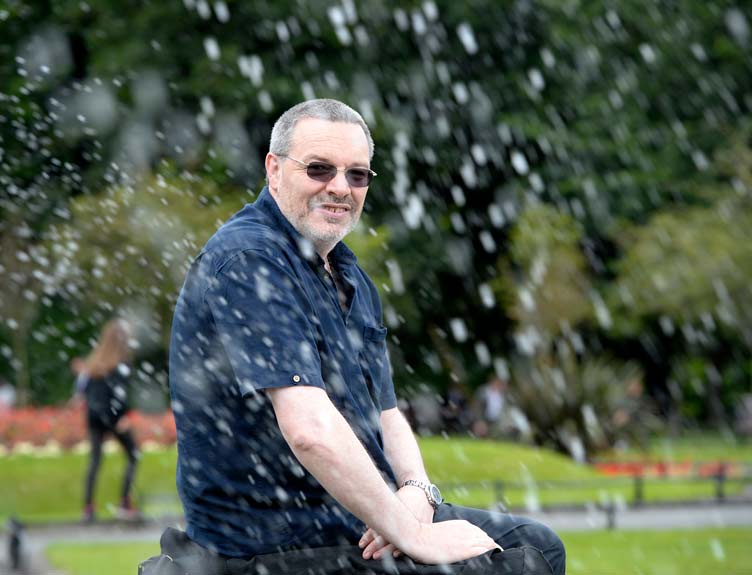New RCSI-led water project to increase affordable access to safe drinking water

A major international research project led by researchers at RCSI in Dublin is developing low-cost technologies to reduce the number of people worldwide who rely on unsafe drinking water.
The WATERSPOUTT consortium has been awarded €3.6 million by the European Commission under the Horizon2020 programme to provide affordable access to safe drinking water in remote and vulnerable communities throughout Sub-Saharan Africa and other resource-poor countries.
Solar water disinfection (SODIS) is a household water treatment that uses sunlight to kill harmful microbes in water stored in transparent containers and is used by 5 million people in developing countries on a daily basis. However, 660 million people around the world remain without sustainable access to safe drinking water.
WATERSPOUTT aims to increase the number of people who use SODIS by developing technologies that will allow larger volumes of water to be treated. Rather than having to use numerous standard two-litre bottles, which is using the current standard SODIS process, these WATERSPOUTT technologies will provide households with larger volumes of up to 20 litres of treated water per day, using just one container.
These technologies will be designed in consultation with families, schools and clinics in Africa and will be piloted in Uganda, South. Africa, Ethiopia and Malawi. WATERSPOUTT technologies will have an estimated market of more 102 million potential end-users in Africa in addition to 50 million others in Asia, Europe and Latin America.
The collaboration is coordinated by RCSI's Professor Kevin McGuigan and also involves researchers from Maynooth University, led by Professor Honor Fagan, and Dublin City University led by Dr Brid Quilty as part of the 3U Partnership - 3U Global Health research programme. The project, which kicks off with a two-day symposium starting at RCSI in Dublin today, will include researchers from the 18 collaborating institutions across Europe and Africa including Spain, UK, Switzerland, Ireland, Italy, Austria, The Netherlands, Turkey, Uganda, South Africa, Malawi and Ethopia.
WATERSPOUTT coordinator Professor Kevin McGuigan of RCSI's Department of Physiology of Medical Physics said: "More than 600 million people worldwide do not have regular access to safe drinking water and the majority of these live in rural areas with no realistic hope in the foreseeable future of access to distributed treated water systems. This exciting new research programme will develop technologies to treat larger amounts of water in the household in the developing world. By using larger containers of water it will reduce the workload for families to provide their own safe drinking water, preventing illnesses particularly in the very young and very old who are most vulnerable to waterborne diseases."
The WATERSPOUTT project will design, pilot and bring to market three novel solar based technologies which are solar rainwater reactors, solar jerrycans and solar-ceramic filtration.
RCSI researchers have been developing SODIS technology to make the water safe to drink for more than 25 years have carried out trials across Africa and Asia to demonstrate its effectiveness.
The WATERSPOUTT consortium partners are: RCSI (Royal College of Surgeons in Ireland), Ireland; CIEMAT Plataforma Solar de Almería, Spain; Universidad Rey Juan Carlos, Spain; University of Strathclyde, UK); University of Malawi Polytechnic, Malawi; Ecole Polytechnique Fédérale de Lausanne, Switzerland, Maynooth University, Ireland; Innova, Italy; Makerere University Kampala, Uganda; University of Stellenbosch, South Africa; Ecosystem Environmental Services, Spain; Mekelle University Tigray, Ethiopia; Buckinghamshire New University, United Kingdom; Bogaziçi University Istanbul, Turkey; HELIOZ GmbH, Austria; Dublin City University, Ireland; Stichting IHE Delft, Netherlands; and University of Santiago de Compostela, Spain.
This project has received funding from the European Union's Horizon 2020 research and innovation programme under grant agreement No 688928.



